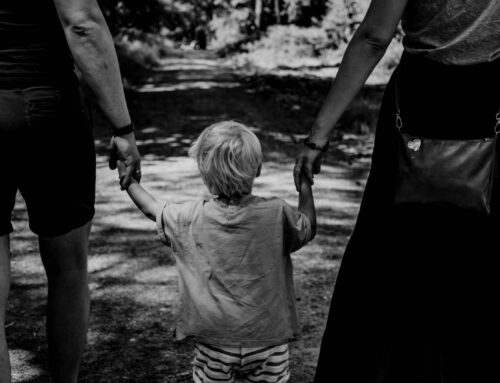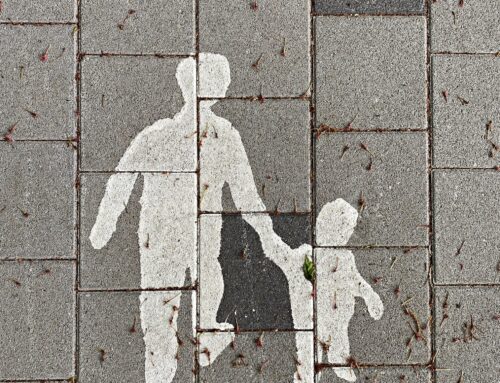Divorce evokes stories of letters from attorneys, arguments over property, expensive custody battles, and kids caught in the middle. If you are going through a divorce, such “war stories” perpetuate mistrust and defensiveness between divorcing spouses. Fearful of a negative and contentious process, spouses hunker down and attorney up in preparation for battle. Sadly, this posturing creates an experience where everyone loses, especially the children. Yes, divorce is stressful and painful. Hurt, anger, sadness and adjustments are all part of the landscape. However, divorce doesn’t have to be financially and emotionally devastating. Your divorce story can be different. There are many things you can do to avoid the “war” story and instead create a better divorce story and better post-divorce life for your children. How you choose to go through the divorce process, what perspective you take and how you cope with your feelings is largely within your control. You can fan the flames of conflict with a highly contentious settlement process, engage in drama, position yourself as a victim or perpetrator or you can take care of yourself and deal with the loss, prioritize your children’s needs and your highest values, and manage your feelings so that you can make reasonable, child-centered decisions with a more peaceful approach to the settlement process. Said another way, the pain of divorce is very real and hard to avoid; the intensity and duration of your suffering is within your control. I want to focus on three key elements of the different and better divorce experience.
The ending of your marriage, whether you wanted the divorce or not, is a highly emotional and deeply personal experience. How you cope with the roller coaster of emotions you may be experiencing is a key factor that will impact your experience of your divorce. Learning a variety of ways to soothe yourself and calm down when emotional will potentially save you not only heartache, but time and money as well. Time engaging in conflict with your spouse that may prolong settlement negotiations and delay resolving your grief. Conflict not only costs you emotionally, but may cost you financially as well. Using your attorney and the settlement process as a way to make your spouse “pay” for your pain or offering money or property in settlement to assuage your guilt are ways unchecked emotions can cost you financially. Share your feelings with supportive friends and family rather than with your attorney or your spouse. Hopefully, by taking care of your feelings separately, you will be ready to be reasonable and conduct business with your attorney or mediator and your spouse. In addition to saving you emotional wear and tear and potentially saving you money, managing your emotions well and minimizing conflict benefit your children. Conflict between parents is one of the most damaging factors affecting children’s adjustment post-divorce. The more conflict created during the divorce settlement process the more difficult and lengthy it is likely to be to resolve on behalf of your children post-divorce. If you care about your kids, you have found a key reason for you to prioritize managing and coping with your emotions.
Speaking of the settlement process, the process you choose to facilitate the legal ending of your marriage can also affect the degree of suffering you and your children experience during and following your divorce. Are you aware there is more than one way to get a divorce? That you do not need to start with the most adversarial and contentious approach (two litigating attorneys) as a means to reach a settlement? Educating yourself about less adversarial alternative dispute resolution approaches, such as mediation or collaborative divorce, could save you emotional heartache and possibly time and money. If you and your spouse choose a two attorney model, interview the attorneys carefully to understand how hard they will work to create a settlement that is less adversarial and avoids litigation. The more you and your spouse are able to use the settlement process to create an outcome you both can live with and support, the more likely you will both adhere to it, reducing the emotional and financial costs of returning to court later with contempt charges or to make changes. The less conflict created by the settlement process you choose, the more likely you are to move beyond conflict post-divorce. This is good for your post-divorce adjustment and is essential to your children’s healthy post-divorce adjustment. Consider your settlement process and team of professionals carefully and wisely.
Lastly, your divorce will be different and better if you make a conscious decision about how you intend to navigate this difficult journey. Whether you want this divorce or not, you are going to go through it. How do you want to handle it? What are your goals for your children and yourself? What attitude do you want to adopt and how do you want to feel when you complete the settlement process? How about five years from now? You can’t reach your goals if you don’t know what they are. You can’t get somewhere if you don’t know where you’re going. Set a positive intention for yourself and place your children’s feelings and needs at the center. Make an effort to focus your thinking on a balanced and reasonable perspective, even when your feelings are screaming something different. When you focus on your highest values and your wisest mind and have specific goals to meet this intention, you are more likely to be successful in creating positive outcomes.
Want to have a different, better divorce? Want to have your divorce be more about setting yourself and your children up to adjust well and move on, to cope with the pain and challenges and emerge resilient; a better parent and person? Then set a positive intention with a clear purpose and goals for yourself and your children that directs you toward that positive future. Pick a non-adversarial team of professionals. Seek out friends and family that will support your highest values and goals, and work at coping well with your emotions. These steps are not easy! They can be quite challenging. But an ugly divorce is challenging, and leaves such scars. Let divorce be the life change that makes you not breaks you. Stay tuned, as I will be talking more in the coming months about how divorce can be different and how you can make yours better.





